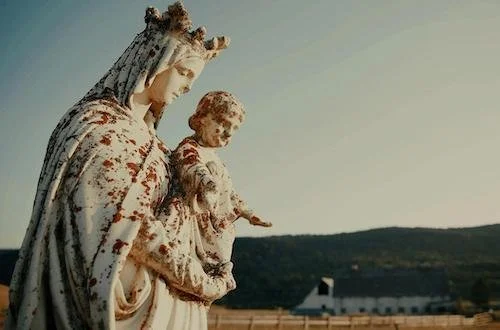Sugarcane
Written by Andreas Babiolakis
The recent-enough discourse surrounding the history of the Canadian residential school system — one that led to the torture and murder of Indigenous youths for generations — is no longer shedding light on a hidden part of national history. However, go back just ten years ago, and there was a time where this part of Canada’s identity was ignored, never to be taught in school or to be discussed. Indigenous communities faced decades of neglect and targeted malign (I’d argue they continue to today). Sure, we have the National Day for Truth and Reconciliation on September 30th, but how much awareness does that bring when it is treated as a federal statutory day? Schools encourage the wearing of orange shirts to shed light on these atrocities, which helps the younger generation learn about these residential systems, but I otherwise think that many aren’t getting the full picture even still.
Then there are those who refuse to shy away from this moment in history, as they feel like there hasn’t been enough education surrounding a matter that was once previously not taught whatsoever. Filmmakers Julian Brave NoiseCat and Emily Kassie banded together to create Sugarcane: a documentary precisely about the residential schools nearby the titular reserve. The opening shot is one that is both cold yet beautiful: a natural shot of Sugarcane Reserve that is basking in sunlight yet full of damp-wet blue hues. We see the place many called home, but we also sense the lingering dread and trauma that envelops it; the tragedy feels inescapable. We follow a few subjects and hear their stories. In this instance, they all stem from the Catholic reign of the neighbouring residential schools of Sugarcane Reserve. I warn you that their recounts of multiple types of abuse at the hands of the priests there are horrifying, likely triggering, and haunting; a particular discussion surrounding one interview subject’s birth has never left my mind since I first saw Sugarcane because it affected me so much.
Sugarcane is an upfront, no-nonsense look at the tragedy found within just a sample size of the residential school system monstrosities throughout Canadian history.
Sugarcane doesn’t shy away from its subject at any time, depicting a full portrayal of atrocities and the countless innocent souls who suffered just because of their race and culture. The documentary is focused specifically on a small sample size of an unfortunately massive picture, but that also does enough heavy lifting; if this is just what happened in one area of Canada, one cannot even fathom the amount of abuse and murder that took place nationwide for many years. I don’t think a documentary about each and every residential school would be needed after the lesson Sugarcane delivers — one within an eerie, raw, unfiltered gaze — but, if many more documentaries were to come, that’s what the nation has to answer to for allowing the slaughtering and traumatizing of Indigenous peoples — amongst many other marginalized communities — for generations. Sugarcane does enough to speak up for all instances of systemic racism and assault, though, because it never backs down on its mission. With cinematography that feels hazy and highly saturated, Sugarcane feels like you are watching these discussions with newly opened eyes: the very eyes that cannot look at the world the same way again once you’re done with this highly effective documentary.
Andreas Babiolakis has a Masters degree in Film and Photography Preservation and Collections Management from Ryerson University, as well as a Bachelors degree in Cinema Studies from York University. His favourite times of year are the Criterion Collection flash sales and the annual Toronto International Film Festival.






